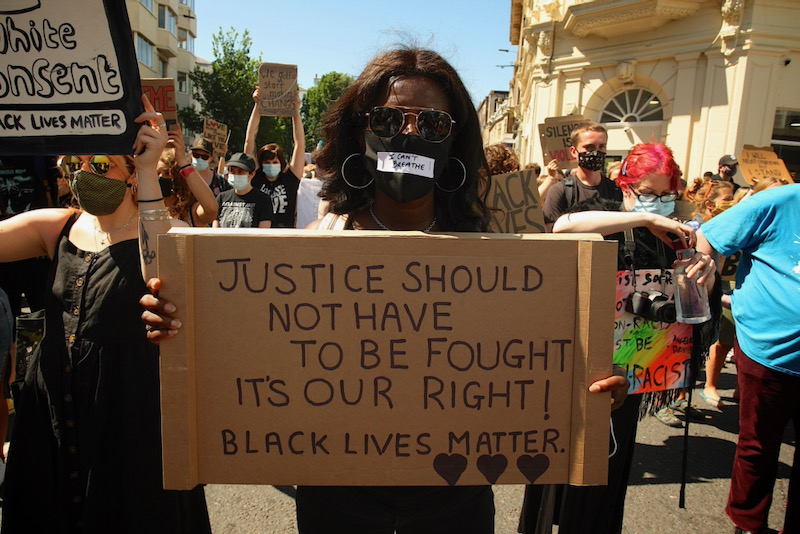I’ve recently taken over writing the military obituaries at The Times. It's not at all a sorrowful job. Families – so far least – seem only two delighted to have their loved one memorialised, and former colleagues only too keen to contribute memories and impressions. And, of course, having been a soldier myself for 35 years, I will usually know of them, or indeed have known them in person, as well as who to talk to. So far, besides reviewing and updating the obits that are pre-written for stock, I’ve written four from scratch.
All four of the lives have an interesting spiritual dimension, though for a number of reasons it’s difficult to write about it in the context of a 900, 1100 or even a 1500-word obituary, the three standard lengths of Times obits. One of them was a devout Parsee, a former officer of the Indian army who’d had an interesting war in Burma and who’d died in Bombay (which he’d never have called Mumbai). The other three were Catholics, but each of a very different stamp.
Major-General Jeremy Phipps, cavalryman and SAS officer, was a cradle Catholic. His mother was Veronica Fraser, daughter of the 14th Lord Lovat, Chief of Clan Fraser, Jacobite Catholics. Phipps went to Ampleforth, where his housemaster, Father Walter Maxwell-Stuart, was secretary of the Ampleforth College Beagles. Phipps, he said, hadn't learnt much history, but did cast “a very pretty dry fly”. I was minded of Evelyn Waugh’s Sword of Honour trilogy. Indeed, Waugh would have made much of the material I gathered.
The second obituary was of a man commissioned from the ranks of the Parachute Regiment. He’d left school at fourteen in 1947 and enlisted as a “boy soldier”, going to the Army Apprentices School in Arborfield where bright recruits were trained for the technical arms. He’d been a choirboy at his local Anglican church, and he’d have had the benefit of “service religion” at Arborfield and after, but I don’t think much else. He was a fine athlete, and when he began adult soldiering he quickly transferred to the Paras.
For the next twenty years he seemed to serve in every hotspot of the receding British Empire. Then in 1970 he was commissioned, and found himself as the Intelligence Officer of 3 Para in Belfast at the height of “The Troubles”, where he won the Military Cross for bravery and innovative intelligence gathering, not least in the shebeens, the (usually unlicensed) drinking houses of the Nationalist communities. One Sunday morning he and three others in the regimental cross-country team ran round Ardoyne, 3 Para’s “patch”, unarmed and in regimental sweatshirts to show the community that nothing was off-limits to them. He carefully timed it so that they ran past Holy Cross Church just as the congregation were coming out of Mass, and arranged for a photo to be sent to the Maze Prison to tell the IRA internees that Ardoyne, which the IRA reckoned was theirs, was nothing of the sort. He spent several years subsequently in Belfast, working covertly. Later he married an Englishwoman who was a Catholic, and went with her to Mass, but never took the plunge. Then two years ago, when he was 86, her parish priest, a former army chaplain, asked him if he’d ever thought of becoming a Catholic too. He had, of course. And he did. And his funeral mass was held on 23 March.
When I’d written the obit, I found myself wondering if I really ought to read Anna Burns’s Milkman. She’d have been in her early teens growing up in Ardoyne when he’d been there. Or whether just to forget it all (Ardoyne in the 1970s was not a happy place for anyone; it had certainly come as a shock to me). Indemnity and oblivion?
The third obituary was of an SAS man, the child of a “mixed marriage”, his father a protestant from the ultra-Loyalist Shankill area of Belfast, and his mother a catholic from Cork, where young Tommy was brought up. He too left school at 14, worked for a bit, and then at 18 went north and joined the British Army. After a few years in the Royal Irish Rangers, one of the few Northern Irish institutions that appeared to be able to function in a non-sectarian way (a third of its recruits coming from the south even today), he joined the SAS and did heroic things in the Falklands War. Then afterwards covert stuff in Northern Ireland, before he too was commissioned. But he’d married an Anglican, and when it came to his death – prematurely, at 71 – he was buried with Anglican rites. Why? Because of what he’d seen or heard or experienced (the family didn't vouchsafe) in the church of his boyhood.
And I was minded, with considerable sadness, of one of William Trevor’s (another Cork man) short stories – Of the Cloth, in the collection The Hill Bachelors (2020), in which an aged Donegal rector attends the funeral of his gardener in the local Catholic church. He’s impressed by the apparent confidence of the congregation, comparing it to his own disappearing religion, whose designation (Church of Ireland) “had long ago seemed too imposing a title, ludicrous almost in its claim”. He’s subsequently visited by the young priest, and it’s a heartening meeting. But he’s then visited by the priest’s elderly superior, who sees on the rector’s table a newspaper headline about a Belfast priest who’s been arrested for child abuse. The old priest is devastated by the emerging scandal of abuse – he cries frequently in the seclusion of his room, which the young priest knows of by his reddened eyes – and is quite overcome. I read it some years ago when I lived in Rome, at about the time the film The Magdalen Sisters was released, which I saw in a cinema in secular-minded Prati. I remember thinking at the time, before I myself had crossed the Tiber, that the victims would never be short of sympathy, and rightly; but also that the innocent clergy would carry the burden of the cross.
I’m not sure that I can bear to read Of the Cloth again, its being “naught for your comfort”.
However, it’s time I re-read the Sword of Honour trilogy (it’s all of five years since last time): all life is there, as they say; the humour is “wicked”, and the Catholicism comforting.
I also know that, with the centenary of Irish Independence approaching and with it the unresolved issue of Nationalism and the IRA, I really must steel myself to read Anna Burns and see what if anything I failed to grasp in the 1970s and 1980s about Ardoyne and the other “Green” areas. Only then perhaps will it be time for personal “Indemnity and Oblivion”.



 Loading ...
Loading ...
What do you think?
You can post as a subscriber user ...
User comments (0)